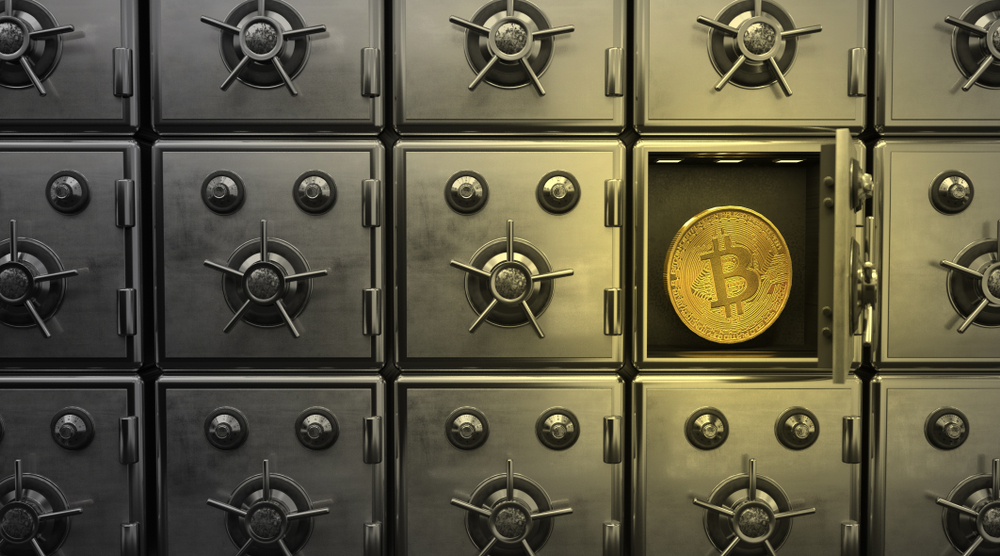Crypto vaults are a recent frontier in protecting digital assets, providing improved protection compared to conventional exchange accounts and hot wallets. The reinforced digital safes are designed to protect cryptocurrencies online, safeguarding them from the continuous threat of online attacks.
Crypto Vaults Explained
With several security layers, cryptocurrency vaults offer peace of mind for investors concerned about their holdings’ safety. Different from hot wallets that are linked to the internet, crypto vaults are mainly offline, making them considerably less susceptible to hacking.
Most crypto vaults also integrate cutting-edge encryption tactics and need several transaction approvals, further strengthening their security. For beginners or experienced crypto investors, a crypto vault can be vital in safeguarding digital wealth.
Categories of Crypto Vaults
Smart contract vaults use blockchain to automate security interventions via predefined code, improving control and transparency compared to digital assets. Time-locked vaults unveil withdrawal hold-ups to prevent actions and unapproved access attempts.
Multisignature wallets offer several approvals for transactions, boosting security via consensus and collaboration. Hybrid vaults merge cold and hot storage features, providing robust security for bigger holdings and convenience for small transactions.
How do Crypto Vault’s Function
Crypto vaults protect digital assets by reducing their exposure to online risks. This process starts by depositing cryptocurrencies from an exchange or hot wallet into the vault’s selected address, commencing asset transfer to a safer environment.
After depositing, the vault uses offline storage methods, encryption protocols, and Multisignature authentication to store the cryptocurrency safely. This protects assets from online susceptibilities and unapproved access.
The vault’s security mechanisms are stimulated to start an initiation or withdrawal. The mechanism differs based on the kind of vault and might include time-founded delays, smart contract execution, or multiparty authentications.
After successful approval and finalization of needed delays, the vault releases the quantified cryptocurrency amount to the chosen address. This entails processing a transaction on the blockchain platform, ensuring verifiability and transparency.
Trustworthy vault providers frequently carry out auditing and monitoring procedures to maintain the highest security level. Examples of interventions entail susceptibility evaluations, security audits, and transparency logging.
Crypto Wallet Versus Crypto Vault
Both hot and cold crypto wallets are mainly designed for regular transactions and the management of smaller cryptocurrency amounts. Convenience and ease of use are the main priorities, permitting users to swiftly manage, send, and receive assets.
The wallets’ constant connection to the internet or possible susceptibility to physical theft increases the risk of hacking and unapproved access. On the contrary, crypto vaults operate as protected digital safes, prioritizing security and utilizing several protection layers, such as multisignature authentication and offline storage.
Hence, crypto vaults are considerably more robust against phishing, hacking, and online threats. Crypto vaults offer improved security, making them the best for storing significant cryptocurrency amounts for the long term.
Crypto Vaults Benefits
Crypto wallets implement measures such as multisignature authentication that offer improved security features that go past those of typical wallets. Further, withdrawal delays establish a time buffer that permits users to spot and potentially undo deceitful transactions. The robust safety protocols offer an extra protection layer for digital assets, averting the risk of loss.
Unapproved access is a significant concern in cryptocurrency, and crypto vaults are developed to avert the risk. It requires several authentications and incorporation of time locks, creating considerable challenges for unapproved persons seeking to acquire asset control.
The cutting-edge encryption protocols used in crypto vaults also protect private keys and sensitive data, preventing hackers from compromising the safety of stored funds.
Final Thoughts
Crypto vaults’ focus on security mostly leads to reduced control and accessibility compared to regular wallets. Withdrawals might need several approvals or time delays, making them less convenient for those who desire fast access to funds.
The risk linked to the vault provider itself is another factor. In case the provider encounters security breaches, insolvency, or technical issues, users’ assets might be at risk.
Some providers charge fees, which users must take into account when evaluating the pros of improved security against the costs and possible risks.
